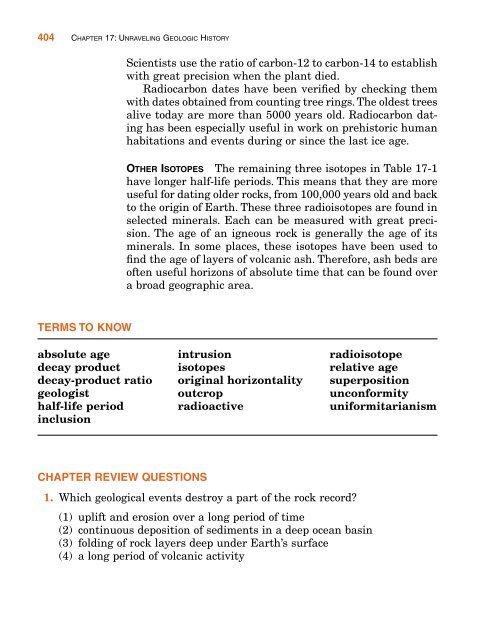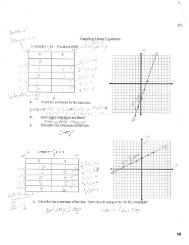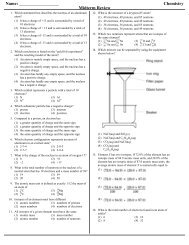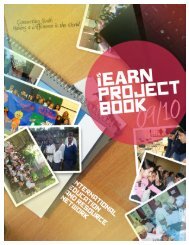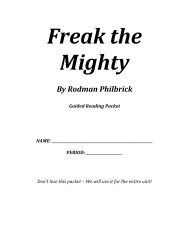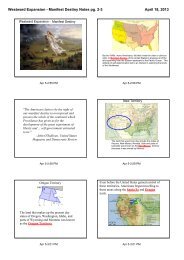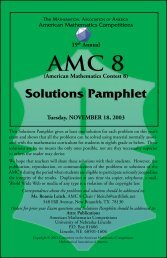Chapter 17 Unraveling Geologic History
Chapter 17 Unraveling Geologic History
Chapter 17 Unraveling Geologic History
You also want an ePaper? Increase the reach of your titles
YUMPU automatically turns print PDFs into web optimized ePapers that Google loves.
404 CHAPTER <strong>17</strong>: UNRAVELING GEOLOGIC HISTORY<br />
TERMS TO KNOW<br />
Scientists use the ratio of carbon-12 to carbon-14 to establish<br />
with great precision when the plant died.<br />
Radiocarbon dates have been verified by checking them<br />
with dates obtained from counting tree rings. The oldest trees<br />
alive today are more than 5000 years old. Radiocarbon dating<br />
has been especially useful in work on prehistoric human<br />
habitations and events during or since the last ice age.<br />
OTHER ISOTOPES The remaining three isotopes in Table <strong>17</strong>-1<br />
have longer half-life periods. This means that they are more<br />
useful for dating older rocks, from 100,000 years old and back<br />
to the origin of Earth. These three radioisotopes are found in<br />
selected minerals. Each can be measured with great precision.<br />
The age of an igneous rock is generally the age of its<br />
minerals. In some places, these isotopes have been used to<br />
find the age of layers of volcanic ash. Therefore, ash beds are<br />
often useful horizons of absolute time that can be found over<br />
a broad geographic area.<br />
absolute age intrusion radioisotope<br />
decay product isotopes relative age<br />
decay-product ratio original horizontality superposition<br />
geologist outcrop unconformity<br />
half-life period radioactive uniformitarianism<br />
inclusion<br />
CHAPTER REVIEW QUESTIONS<br />
1. Which geological events destroy a part of the rock record?<br />
(1) uplift and erosion over a long period of time<br />
(2) continuous deposition of sediments in a deep ocean basin<br />
(3) folding of rock layers deep under Earth’s surface<br />
(4) a long period of volcanic activity


